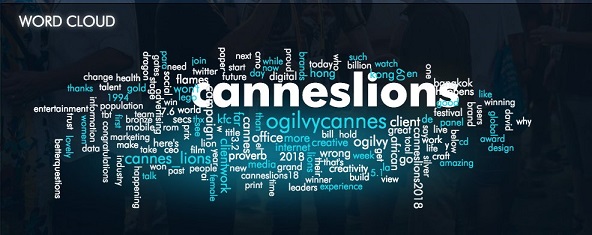
“We Sell. Or Else.” said David Ogilvy, and set the diktat for generations of marketing people to follow. At the recently held Cannes Lions 2018, several speakers discussed the changing role of marketing and how the mantras of selling were in the process of transcending Ogilvy’s decrees.
The changing world scenario with people losing faith in the government and the media has, according to several speakers, added additional responsibility on brands. People are now looking up to brands for leadership in bringing about social change and for supporting them on critical issues ailing the society. So in addition to brands having a purpose, people also expect them to take a stand on social and political issues, “become social activists,” as well as provide a platform to foster a sense of belonging to their customers and provide them with spiritual succour. Being good citizens with high ethical standards and being gender sensitive are taken as read.
Richard Edelman quoted the Edelman Trust Barometer which revealed that that people believe that brands should play a leadership role. “Brands are the new democracy… People feel that they can depend on brands…Brand marketers are our best hope in a dysfunctional world,” he said. His guest, Ellen Pompeo, star of Grey’s Anatomy said, “Brands will need a moral centre to survive. Consumers will not buy from brands that don’t stand up with them on issues that matter.” Edelman urged brands to bring about social change by first bringing about changes in their own companies with the marketing departments taking the lead instead of finance.
Keith Weed, Chief Marketing Officer, Unilever, a strong proponent of brands with a purpose spoke of companies being driven by a sense of mission that went beyond the product and aimed at helping society. He gave the example of his guest, Richelieu Dennis, founder of Sundial brands, who manufactured cosmetics for women of colour and supported the community by ensuring that a percentage of profits went to the providers in the supply chain.
26 of Unilever’s Sustainable Living brands are delivering 70 per cent of the company’s growth and are growing 46 per cent faster than other Unilever brands, said Weed to prove his point that his views make business sense. If you don’t have brands with a purpose, then embed purpose in them or acquire such brands, he advised.
Paul Pullman, CEO, Unilever worldwide corroborated this by saying, “People don’t want products to buy but ideas they can buy into.” At the seminar on Future Consumer 2020, Andrea Bell, director of insights at WGSN said, “People are not buying products, they are buying you…Be good or be bankrupt.” She showcased this by giving the example of Amazon who has added a shelter for the homeless in in their new office. Mars CMO, Andrew Clarke said, “Purpose can really add value…Big corporations have a responsibility to drive purpose.” Marc Pritchard, CMO, P&G said, “Brands can be a force for good and a force for growth and you have to make a case for that.” Piyush Pandey, executive chairman and creative director, Ogilvy, South Asia said that the role of advertising is no longer to just sell, or comment on society, but to participate and change it.
Several examples were shared by the speakers. Some of the popular ones being Nissan supporting women drivers in Saudi Arabia through their campaign #She Drives; Baby Shop in the Middle East creating a word to include mothers in parenthood; Burger King taking up the cause of net neutrality and explaining its implications through a series of onsite activations; McDonalds flipping its golden arches to appear as the alphabet W to celebrate International Women’s Day; Starbucks taking up the issue of racial discrimination.
A seminar based on a study titled, ‘Rational, Emotional and Spiritual’, discussed new frontiers for brands – spirituality and morality. People are living isolated lives and are searching for a sense of belonging and meaning in their lives. Brands were encouraged to engage with people on a human level and help them ‘become what they think they have the potential to be.”
Nancy Kramer of IBM spoke of brands having a Belonging driver. “customers don’t want to be a company’s ATM. They want to feel that they belong, feel cared for and comforted.”
A question that begs answer however, is that are these mantras only applicable to big brands in developed countries? Would a money conscious consumer care about brand ethics? Are these new world mantras? Guess brands will know on application. As of now, marketing managers have been provided with new opportunities to make a difference and as Paul Pullman urged, “now is your time to not only demand your seat at the table, but demand the table itself.”

